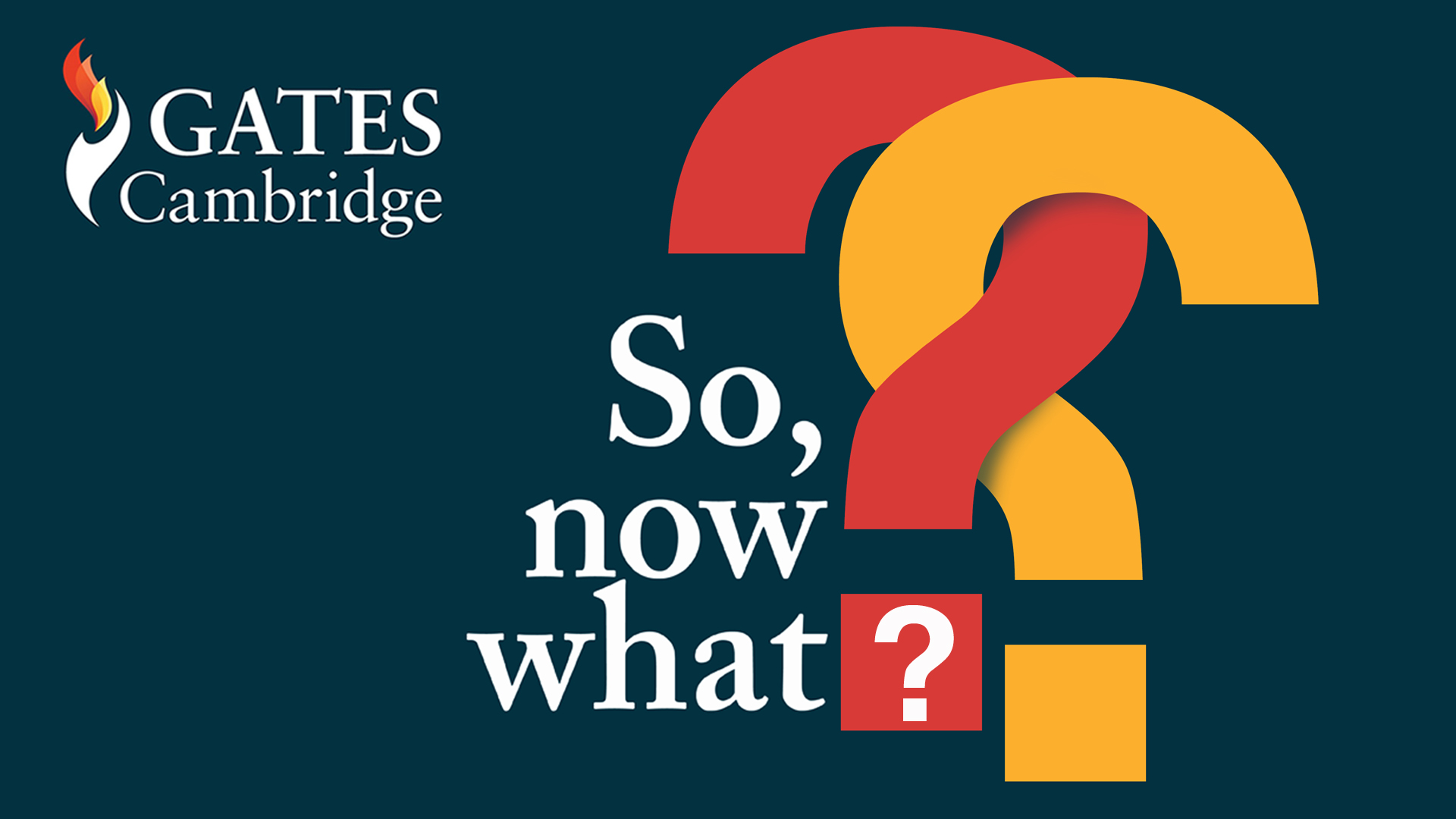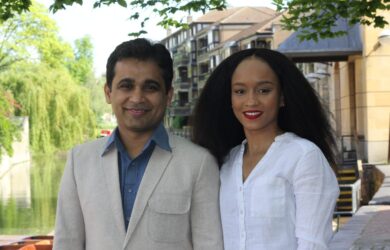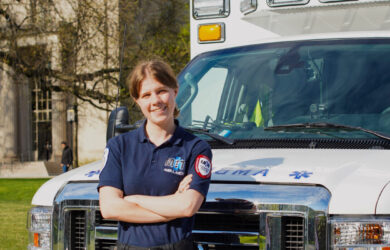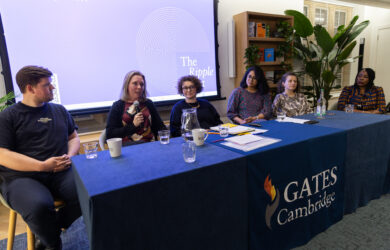
In the third episode of series two of our podcast, three scholars debate what works for conservation and biodiversity
Three Gates Cambridge Scholars debate what works when it comes to promoting conservation and biodiversity in the latest episode of our podcast So, now what?
Michael Pashkevich, Onon Bayasgalan and Christian Boehm debate everything from the Biodiversity Plan, the 30 by 30 initiative to protect 30% of the planet for nature by 2030 and the need for better data to the importance of supply chains, international cooperation, community engagement and optimism.
Boehm outlines what he thinks is needed to achieve global conservation targets. He says: “We need modern tools for effective observation of biodiversity. We also need to promote international standards of monitoring so that observations are globally comparable and allow elucidation of long-term trends. And finally, we also need to mainstream biodiversity into policies and practices across all sectors. for example, decisions in business, infrastructure, or in agriculture do not conflict with conservation.”
Pashkevich points out the need for a more nuanced approach to priorities, given different regions have different priorities, but he says that might require some hard decisions while Bayasgalan says that conscientious consumers need to focus on manufacturers, but also their supply chain to have maximum impact.
Christian Boehm [2013] is Deputy Head of Division in “New Methods in Life Sciences” at the German Federal Ministry of Education and Research. In this role he is responsible for developing and managing funding programmes on biodiversity and ecosystem research and has represented the Ministry before the Convention on Biological Diversity and the World Biodiversity Council IPBES for five years. Christian, who did his PhD at Cambridge in Plant Sciences, also currently serves as Vice-President of the Human Frontier Science Programme and founded the European Synthetic Biology Society EUSynBioS in 2014.
Michael Pashkevich [2017] is a field-based ecologist who is broadly interested in how changes in land use, management and climate influence nature and society. Much of his career has been spent researching oil palm: the crop that makes palm oil. His PhD in Zoology investigated how replanting and restoration of areas adjacent to rivers influenced arthropods in industrial oil palm plantations in Sumatra, Indonesia. Since then he has held several fellowships and started the Sustainable Oil Palm in West Africa (SOPWA) Project. SOPWA is investigating how traditional and industrial approaches to oil palm cultivation in Liberia, West Africa influence nature and society. He is currently a Research Scientist at Natural Resources Institute Finland, where he continues to work in oil palm in Southeast Asia and West Africa. He also coordinates research across Europe to investigate interactive effects of climate change and biodiversity loss on nature and society, and works with stakeholders to develop solutions that efficiently combat these global crises.
Before Cambridge, Onon Bayasgalan [2019] spent six years at the Wildlife Conservation Society, where she worked on an innovative market-based conservation project based on collaboration between nomadic herders, the fashion world and the mining sector to produce sustainable cashmere that uses the grasslands of Mongolia in a regenerative manner. Since 2022, Onon, who did her MPhil at Cambridge in Conservation Leadership, has worked as the Chief Sustainability Officer at URECA, a climate-tech start-up which is also working on grassland projects. She initiated the Environmental Fellowship Program while working for the Zorig Foundation, a Mongolian non-profit, in 2010 and is the founder of Climate Mongolia, a climate outreach platform. She is also a board member of New Nomad Institute, Golomt Foundation and Zorig Foundation among others.
The episode is the third of eight in the new anniversary series which will cover everything from astronomy to new research into ageing societies. The podcasts will be posted on the last Tuesday of the month with the April podcast being on the question of what astronomy tells us about our place in the universe.
Listen to the new episode here.












